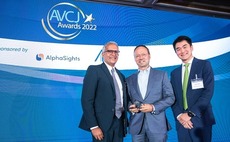
Corporate governance: Thin end of the wedge?

Japan’s corporate governance code will not trigger a torrent of non-core divestments, but it may encourage boards to think strategically about how – and with whom – they can improve performance
All but four of the people sitting on Walmart's 16-strong board of directors are independent. Those appointed by the US-listed supermarket retailer to safeguard the interests of shareholders and offer strategic advice to management include the current or former top executives of Yahoo, Coca-Cola, American Airlines, Leo Burnett and KPMG International.
Moving through the ranks of the Fortune 500 it is a similar story. Chevron's 12-member board features 11 independent directors; at Ford Motor it is 12 out of 15; at Bank of America, 11 out of 13; and at Google, seven out of 10.
While the New York Stock Exchange and NASDAQ require that domestic member firms have a majority of independent directors, the Tokyo bourse is more lenient: the minimum is one. Three of Toyota's 15 directors are independent; at SoftBank Corporation it is three out of 10; at Kirin Holdings, three out of nine; and at Panasonic, three out of 17.
In this context, the recommendation in the newly implemented corporate governance code that companies appoint at least two independent directors doesn't appear particularly groundbreaking. Indeed, it is questionable whether two dissenting voices would have any impact on the "company men" hegemony that characterizes many Japanese boardrooms.
"It is the right idea and the right direction in which to be pushing companies," says David Gross-Loh, managing director at Bain Capital. "Having said that, it is by no means an instant solution. Two outside directors is not significant enough to sway the ultimate discussion. While you might get some new perspective, I think the voice of the board will still be dominated by the internal management team members."
No one expects an immediate transformation in corporate behavior, but to a number of investors, this and other reforms could be the thin end of the wedge. Boards that are more accountable and are more open-minded about strategy might be more willing to consider divesting non-core assets that are a drag on performance. This could in turn stimulate private equity deal flow, or so the theory goes.
Structural shortcomings
Japan placed third in the Asian Corporate Governance Association's (AGCA) 2014 rankings, behind Singapore and Hong Kong. It closed the gap, in part due to policy initiatives, but continues to be let down by weak corporate governance rules and practices. Thailand, Malaysia and India all performed better than Japan in this category.
"Among the various stakeholders, employees, customers, government, alumni and the local communities have oftentimes been prioritized over shareholders. And when you consider the senior lending banks, they too are often favored over equity owners," observes Hiro Hirano, Japan CEO at KKR. "To enhance governance oversight, it is important that equity shareholders have a larger consideration."
The policy initiatives the AGCA refers to fall under a revitalization strategy that received cabinet approval in mid-2013. It is generally seen to encapsulate much of the structural reform envisaged in the "third arrow" of Prime Minister Shinzo Abe's economic stimulus package.
Since then, a stewardship code has been enacted outlining the responsibilities of institutional investors; the JPX-Nikkei Index 400 has been introduced, which assesses candidates based on criteria such as return on equity (ROE), the appointment of independent directors, and transparent reporting; and proxy advisory firm ISS has recommended voting out directors of companies that fail to achieve an ROE of 5%.
The corporate governance code, based on principles set out by the Organization for Economic Cooperation and Development (OECD), is agnostic as to the corporate governance structure used: the board of directors plus kansayaku corporate auditors favored by most Japanese companies; the Western-style nomination, compensation and audit committees; or the hybrid model of a board of directors and an audit committee with supervisory functions.
The code is also flexible and non-prescriptive. There is an acceptance that companies outside of the TSE's First and Second Sections may struggle to comply, and a willingness to accommodate them, provided suitable explanation is provided for non-compliance. The five general principles cover the rights and fair treatment of shareholders, cooperation with stakeholders, proper disclosure and transparency, board responsibilities, and shareholder engagement.
"The code will be the basis for engagement between companies and shareholders. In the past shareholders had found it difficult to discuss certain corporate governance-related issues because there was no set of principles to which companies were subject to," says Ken Kiyohara, a partner at Jones Day. "Management did not understand or pretended not to understand what was being asked."
More detailed recommendations include performance-related pay for management teams in order to better align their interests with those of shareholders, and a reexamining of the cross-shareholdings that proliferate in corporate Japan. However, the independent director issue is arguably the most noticeable, and also the easiest criteria on which to gauge progress.
According to the TSE, 1,595 of the 3,414 companies across its four boards had independent directors as of July 2014. The 46.7% ratio compares to 33.8% the previous year. First Section companies are leading the way: 61.4% had independent directors, up from 46.9% in 2013. However, only 390 - or 21.5% - of the 1,814 First Section companies had more than one independent director and the average is 1.57.
In a response issued in January to the draft code, the ACGA advised the Financial Services Agency that companies need at least three or one third independent directors if they are to deliver objective oversight. "The quality of the individuals chosen as independent directors - their character, expertise, business experience and broader understanding of the interests of all stakeholders, including shareholders - is critical," the ACGA added.
It is a concern shared by KKR's Hirano, who questions whether there are presently enough experienced CEOs available to fill more director roles. However, director quality is meaningless if the issues under discussion are not substantive.
"If there are meaningful discussions between informed executives and independent directors one would expect it to be beneficial to corporate governance," says Paul Ford, a partner with KPMG FAS in Tokyo. "You can have the best independent directors in the world but if all they are doing is following a superficial agenda at the meeting then there is a risk that they just become window dressing."
Early days
It is too early to tell how willingly Japanese companies will embrace the spirit of the code, using it as a rationale for engaging in more intensive discussions with shareholders and taking difficult strategic decisions. At the other end of the spectrum, companies might comply from a public relations perspective but otherwise stick to business as usual.
A potential differentiating factor is if reform is proved to deliver improved performance. Confronted by the emergence of a two-tier market in which companies that fully implement the code reap the benefits through improved share prices and those that reject change struggle, the laggards will come under pressure to up their game. Not everyone buys into the potential upside of the code, though.
Alexander Kinmont, CEO of Milestone Asset Management, which invests in small, financially productive publicly traded Japanese companies, says he has no problem with the quality of governance. There are two reasons for this. First, he believes most of the fault lies with large cap, liquid stocks "that are social clubs rather than companies." Second, while he accepts there are individual companies that could be better run, he disputes the notion that governance woes are responsible for wider economic underperformance.
"The usual suggestion is there is something so deformed in the structure of Japanese business that it's impossible for Japan to grow," Kinmont says. "Our basic perception is that it's the other way around. All things thought to be bizarre and to represent failures of a structural nature are really just outgrowths or symptoms of a long period of poor economic performance -and poor economic performance is itself caused largely by repeated policy error."
Corporate divestments should be seen in a similarly nuanced light. It is generally accepted that Japanese companies have too many non-core businesses and would benefit from shedding some of them, but sales are ultimately driven by economic factors. Ford of KPMG FAS notes that holding company structure prevalent in Japan often removes the economic incentive to divest assets. He thinks it is challenging to change this mindset without also tackling broader structural employment flexibility and incentive compensation issues.
Tatsuya Kubo, managing director at HarbourVest Partners, also questions to what extent investors can get traction on divestments as a result of the code alone. "People make these decisions, not governments - and you have to ask yourself why people would make changes," he says.
Yet numerous industry participants insist the traction is there. While government pressure is a factor, it is not the only one. For example, companies are facing greater competitive pressure in their core areas, which might accelerate decisions to offload assets in other areas. At the same time, corporate Japan is looking overseas and it is difficult to justify investing in expansion in non-core areas. Other parties, however, may be willing to provide the required capital and expertise.
Masamichi Yoshizawa, representative director and partner at The Longreach Group, contrasts the situation now with three years ago. Then, the parent company would give the subsidiary three options: stay as part of the groupand improve profitability, be acquired by private equity, or be acquired by a competitor. Most management teams would go for option one. Now the choice is often limited to options two and three. PE is an interesting proposition for management teams because they may retain a degree of autonomy.
AVCJ has records of approximately 220 buyouts in Japan since 2010 and 20% of them could be described as carve-outs from larger companies. Of the transactions for which valuations are disclosed, only 12 cross the $200 million threshold. There are two $1 billion-plus deals: KKR's acquisition of a majority stake in Panasonic Healthcare in 2013 and Bain Capital's purchase of a 50% interest in Jupiter Shop Channel from Sumitomo Corp. the previous year.
Kazushige Kobayashi, managing director at Capital Dynamics, estimates the number of sizeable deals could rise to 2-3 year from the current annual level of zero to one on the back of corporate restructuring and change-in-management strategies.
Value propositions
However, it is worth noting that corporates coming around to the benefits of divestments is only part of the puzzle. The onus is also on private equity firms to present themselves as credible buyers to the board of the parent company and the management of the subsidiary. In both the Panasonic Healthcare and Jupiter Shop transactions, the parent company retained a stake in the business in the expectation of participating in future upside.
According to Gross-Loh, Bain had been in discussion with Sumitomo for a number of years about a range of businesses. It identified Jupiter Shop as a non-core asset but wanted a partner to develop the company, particularly in the internet space. "We showed them some work we'd done with retail and media companies in the US and they were impressed," he explains. There was no auction process.
For Panasonic, the priority was finding a partner with medical knowledge and capital to drive growth within the healthcare unit, and cross-border M&A was a key consideration. By the time the deal closed in April, KKR was already working with the company on a number of potential bolt-on acquisitions, and one of these came to fruition last week with an agreement to buy Bayer's diabetes care business.
There will no doubt be situations in which divestments happen as a result of pressure to pay down debt, but few boardroom discussions will focus on fire sales. Rather, should the corporate governance code have its intended impact, Japanese companies will be encouraged to think strategically about their assets in the context of wider performance. Private equity firms may be pushing on an open door but admission still rests on the ability to add value.
"Compared to where it was 15 years ago, the CEOs of big companies are more serious about listening to us," KKR's Hirano adds. "It may take time for them to make decisions but doors are not being closed. CEOs have to think about how they can improve ROE and how they can enhance their concentration on core businesses."
Latest News
Asian GPs slow implementation of ESG policies - survey
Asia-based private equity firms are assigning more dedicated resources to environment, social, and governance (ESG) programmes, but policy changes have slowed in the past 12 months, in part due to concerns raised internally and by LPs, according to a...
Singapore fintech start-up LXA gets $10m seed round
New Enterprise Associates (NEA) has led a USD 10m seed round for Singapore’s LXA, a financial technology start-up launched by a former Asia senior executive at The Blackstone Group.
India's InCred announces $60m round, claims unicorn status
Indian non-bank lender InCred Financial Services said it has received INR 5bn (USD 60m) at a valuation of at least USD 1bn from unnamed investors including “a global private equity fund.”
Insight leads $50m round for Australia's Roller
Insight Partners has led a USD 50m round for Australia’s Roller, a venue management software provider specializing in family fun parks.








